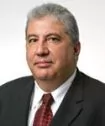U.S. banks also are now able to open accounts in the United States for Cuban nationals located in Cuba to receive payments in the United States for authorized or exempt transactions and to remit such payments back to Cuba.
On March 16, 2016, the U.S. Department of the Treasury's Office of Foreign Assets Control (OFAC) and the U.S. Department of Commerce's Bureau of Industry and Security (BIS) published additional comprehensive modifications to their regulations affecting U.S. policy toward Cuba. The published changes represent a continued U.S. policy of removing prohibitive elements of the embargo on Cuba through the use of Executive Orders and regulatory changes.
President Obama is scheduled to visit Cuba shortly, and these newly announced changes come on the approach of that visit.
The OFAC announcement of March 15, 2016, states: "Today we are building on this progress by facilitating travel for additional Americans looking to engage with Cubans; allowing Cuban citizens to earn a salary in the United States; and expanding access to the U.S. financial system as well as trade and commercial opportunities."
People-to-people travel for educational purposes has been expanded to allow individual U.S. persons to travel to Cuba for authorized direct engagement with Cubans and Americans, without the need of a sponsoring organization and without the need of a representative from the sponsoring organization. The U.S. person must maintain records of the travel to demonstrate a full-time schedule of authorized travel.
When traveling under the auspices of an organization, the traveler may rely on the organization to satisfy the record-keeping requirements.
In addition, so-called "U-turn" financial transactions by Cubans or in which Cuba has an interest are now authorized. Thus, fund transfers from a bank outside the United States that pass through one or more U.S. financial institutions before transferring to a bank outside the United States where neither the originator nor the beneficiary is a person subject to U.S. jurisdiction are now authorized. U.S. banking institutions will also be able to process U.S. dollar monetary instruments, presented indirectly by Cuban financial institutions. This includes cash and traveler checks.
U.S. banks also are now able to open accounts in the United States for Cuban nationals located in Cuba to receive payments in the United States for authorized or exempt transactions and to remit such payments back to Cuba.
On the trade and commerce side, OFAC has expanded existing authorization for physical presence, including offices, retail outlets or warehouses, to include entities that are engaged in authorized activities, such as humanitarian projects; authorized non-commercial activities intended to provide support for the Cuban people; and private foundations or research or educational institutes engaging in authorized activities.
Business activities (presence in Cuba), such as joint ventures, are also expanded to include exporters of goods that are authorized for export or re-export to Cuba or that are exempt; entities providing mail or parcel transmission services or cargo transportation services; and providers of carrier and travel services to facilitate authorized travel.
It is important to note a rather significant "clarification" that the physical and business presence authorizations permit exporters and re-exporters of authorized or exempt goods to assemble such goods in Cuba. A note to section 515.573(c)(3) of OFAC regulations provides that the authorization to assemble authorized exports and re-exports (BIS and OFAC authorized) does not authorize the incorporation of Cuban-origin goods into items assembled pursuant to this section or the processing of raw materials into finished goods in Cuba. What is not answered is whether or not assembly operations can use United States or third-country materials and components in the permitted assembly.
Please refer to the new section 515.573 for a comprehensive review of persons authorized to establish physical presence and business presence in Cuba. These persons include: providers of telecommunications services; providers of Internet-based services; exporters of goods authorized for export or re-export to Cuba; entities providing mail or parcel transmission services; providers of travel and carrier services (this authorization does not allow persons subject to U.S. jurisdiction to establish a physical presence in Cuba for the purpose of providing lodging services in Cuba); entities organized or conducting educational activities; religious organizations engaging in religious activities in Cuba; entities engaging in non-commercial authorized activities; entities engaging in humanitarian activities; and private foundations or research or educational institutes in authorized transactions.
OFAC has now authorized the importation of Cuban origin software. Currently, Cuban origin mobile applications may be imported into the United States.
For additional background, please refer to the OFAC website and a recent post on the firm's Duane Morris on Cuba, Puerto Rico & the Caribbean Blog, " U.S. Relaxes Cuba Sanctions Ahead of President Obama's Historic Trip to Havana," written by Duane Morris special counsel Jose A. Aquino.
Disclaimer: This Alert has been prepared and published for informational purposes only and is not offered, nor should be construed, as legal advice. For more information, please see the firm's full disclaimer.
